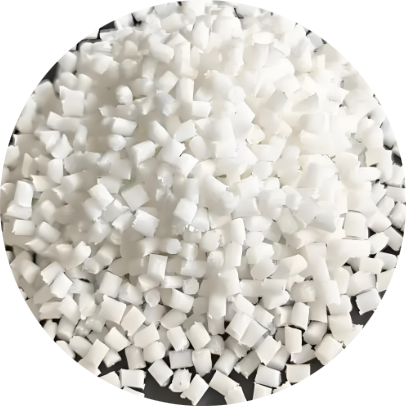Time to read: 6 min

Delrin, a brand of acetal polymer (POM), is renowned for its exceptional structural integrity and durability, making it an ideal material for rapid prototyping and various manufacturing applications. This guide explores the properties of Delrin, its different grades, and their specific uses in industry.
Delrin Plastic: A Material Overview
Delrin's suitability for applications in rapid prototyping stems from its stability and machinability. Available in multiple grades, each with unique properties, Delrin can be processed through CNC machining, injection molding, and 3D printing.
Key Properties of Delrin
- Electrical Characteristics: Excellent insulating properties and resistance to electrical stress make Delrin ideal for electrical components.
- Mechanical Strength: With a tensile strength of 7,000 to 9,000 PSI, Delrin offers a high strength-to-weight ratio.
- Fatigue Resistance: Exceptional resistance to fatigue failure over a wide temperature range.
- Impact Resistance: High toughness allows Delrin to withstand sudden impacts.
- Dimensional Stability: Retains shape during machining, easing the manufacturing process.
- Frictional Properties: Naturally slippery, reducing the need for lubrication in moving parts.
Delrin's Limitations
- Flammability: Requires appropriate fire safety measures.
- Heat Sensitivity: Not suitable for high-temperature environments.
- Bonding Challenges: Difficult to join with adhesives due to chemical resistance.
- Stiffness: Less stiff than metals, requiring additional support for large-span parts.
Grades of Delrin for Rapid Prototyping
Each grade of Delrin offers distinct mechanical properties, making them suitable for specific applications:
- Delrin 150: Known for superior mechanical properties and resistance to warpage.
- Delrin AF 100: Enhanced with PTFE for improved durability and lubricity.
- Delrin (30% Glass Filled): Offers exceptional impact resistance and resistance to creep.
- Delrin AF DE588: Contains PTFE fibers for rigidity and strength in high-stress environments.
Applications of Delrin in Industry
Delrin's versatility is evident across various industries:
- Automotive Industry: Used for gears, window mechanisms, and exterior components.
- Industrial Equipment: Ideal for gears, bearings, and agricultural machinery.
- Consumer Appliances: Found in handles, clips, and valves of consumer goods.
- Electrical Appliances: Serves as housings, switches, and coil forms.
Choosing the Right Delrin Material
Selecting the appropriate Delrin grade involves considering factors such as moisture absorbance, wear characteristics, prototyping process, and intended uses.
FAQs
- Gluing Delrin Parts: Challenging due to Delrin's chemical resistance and natural lubricity.
- Food Safety: Delrin is FDA-certified as a food-grade plastic, safe for food production appliances.
Conclusion
Delrin's diverse properties make it a go-to material for industries ranging from automotive to food processing. Understanding the different grades of Delrin is crucial for selecting the right material for your specific application.
Unofactory offers a wide range of Delrin plastics and expert advice to assist you in choosing the optimal grade for your project. With our comprehensive machining services, including CNC machining and injection molding, we ensure precision and quality in every part we produce.
For inquiries about Delrin plastics or to request a quote, contact Unofactory today.




